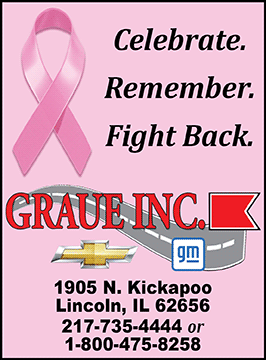|
ATLANTA, May 30, 2025 —The number
of people living with a history of cancer in the United States is
estimated at 18.6 million as of January 1, 2025 and projected to
exceed 22 million by 2035, according to a new report, Cancer
Treatment and Survivorship Statistics, 2025, led by the American
Cancer Society (ACS). The study also found notable disparities in
treatment for many common cancers, including lung and colorectal.
The findings are published today in CA: A Cancer Journal for
Clinicians, alongside its consumer-friendly companion, Fast Facts:
Cancer Treatment and Survivorship, available on cancer.org.
“Behind every survivor of cancer, there is a story of resilience,
but also of unmet needs,” said Dr. Nikita Sandeep Wagle, principal
scientist, cancer surveillance research at the American Cancer
Society and lead author of the report. “Many survivors cope with
critical issues, such as long-term effects of treatment, financial
hardship, and fear of recurrence. It’s vital we recognize and
respond to these needs in an equitable manner.”
For the study, ACS and the National Cancer Institute (NCI)
collaborated to estimate cancer prevalence in the U.S. using data
from the Surveillance, Epidemiology, and End Results (SEER) cancer
registries, the Centers for Disease Control and Prevention's
National Program of Cancer Registries and National Center for Health
Statistics, the North American Association of Central Cancer
Registries, and the U.S. Census Bureau. In addition, cancer
treatment patterns were presented from the National Cancer Database
along with a brief overview of treatment‐related side effects.

Highlights of the study include:
• The three most prevalent cancers are prostate (3,552,460),
melanoma of the skin (816,580), and colorectal (729,550) among males
and breast (4,305,570), uterine corpus (945,540), and thyroid
(859,890) among females.
• About one half (51%) of survivors were diagnosed within the past
10 years, and nearly four out of five (79%) survivors were aged 60
years and older.
• The number of survivors varies by state, from almost two million
in California to about 32,000 in Wyoming and 29,000 in the District
of Columbia, largely reflecting population size.
• The number of female breast cancer survivors is projected to reach
5.3 million by January 1, 2035 – an increase of one million women
from 2025, marking the largest projected growth among the top 10
most prevalent cancers.
• Uninsured people diagnosed with stage I colorectal cancer have
lower five-year survival rates than privately insured people with
stage II disease.
[to top of second column] |

• Racial differences in treatment in
2021 were common across disease stage. Black people with stage I‐II
lung cancer were less likely to undergo surgery than their White
counterparts (47% vs. 52%).
• Larger disparities exist for rectal cancer, with 39% of Black
people with stage I disease undergoing surgery compared to 64% of
their White counterparts.
“Efforts to expand access to high‐quality care regardless of your
skin color or bank balance are vital to reducing disparities and
advancing equity for everyone affected by cancer, which is
ultimately all of us,” said Rebecca Siegel, senior scientific
director, cancer risk factors & screening surveillance research at
the American Cancer Society and senior author of the study. “We need
to do more to level the playing field and end barriers to quality
care both during and after treatment.”
"These findings demonstrate that early detection and improved
treatment are making a real difference in the fight against cancer,”
said Lisa A. Lacasse, president of the American Cancer Society
Cancer Action Network (ACS CAN), the advocacy affiliate of the
American Cancer Society. “There continues to be an urgent need to
protect and expand access to care, especially at a time when
proposed cuts to Medicaid and prevention and screening programs
threaten to reverse our progress and undo the gains we have
achieved. We cannot afford to turn back the clock now. ACS CAN will
continue to work with lawmakers to stress that cuts have
consequences and will only slow our work to end cancer as we know
it, for everyone.”
Other ACS researchers contributing to the study include Dr. Leticia
Nogueira, Dr. Robin Yabroff, Dr. Farhad Islami, Dr. Rick Alteri, and
Dr. Ahmedin Jemal.
About the American Cancer Society
The American Cancer Society is a leading cancer-fighting
organization with a vision to end cancer as we know it, for
everyone. For more than 110 years, we have been improving the lives
of people with cancer and their families as the only organization
combating cancer through advocacy, research, and patient support. We
are committed to ensuring everyone has an opportunity to prevent,
detect, treat, and survive cancer. To learn more, visit cancer.org
or call our 24/7 helpline at 1-800-227-2345.

|